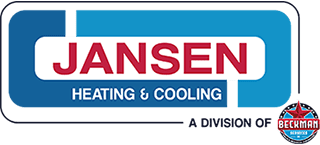Some Key HVAC Facts You Should Know
If you’re like a lot of people, you take for granted the equipment that keeps your home comfortable. You probably get no closer to it than the knob or button on the thermostat in the hallway on the main floor.
But the fact is, the more you know about your home’s forced-air furnace or air conditioner, the better equipped you’ll be to troubleshoot problems that arise. Perhaps you can even fix the issue without calling in a Cincinnati based HVAC repair contractor.
Following are five things you should know about the cooling and heating systems that keep your home comfortable.
Facts about your AC
- The most important fact about your air conditioning system is how it works. In a typical split-system AC, a chemical solution that boils at a very low temperature called refrigerant or coolant, is pumped through thin copper or aluminum tubes between two units.
- One of them (the evaporator) is inside the house and the other (the condenser/compressor) is outside, usually right next to the house. When the refrigerant is pumped through the evaporator coil, the solution boils, transitioning from a liquid into a gas.
- This process extracts heat energy and moisture from the air. This results in cooler and dryer indoor air. The cool air is distributed throughout the house via a blower, ductwork and registers.
- The AC system pumps the now-very-hot refrigerant outside to the condensing coil and compressor. There, it’s compressed back into a liquid.
- As this happens, a fan distributes the released heat energy (from inside) into the surrounding outside air. The refrigerant then begins its cycle again.
- Heat pumps work similarly, except the condensing and evaporator coils switch their functions when the system converts from cooling to heating (with the help of a reversing valve).
The importance of your air filter
The HVAC air filter in your home plays a key role. In any forced-air HVAC system, whether cooling or heating, air filtration is essential. It extracts dirt and dust (and pollen, mold spores, pet dander, bacteria and other contaminants) from the air before it’s pulled into the furnace or AC.
This protects sensitive equipment from getting dirty and breaking down. It also cleans the air before it’s distributed to rooms in the house. An air filter that’s allowed to get clogged with dust and debris will erode system efficiency.
This is because the blower fan has a harder time circulating air through the system. It also will allow more contaminants to get on sensitive equipment and in the household air that you and your family breathe.
Check the filter every month and change it when it gets dirty. Avoid buying the very cheapest flat-panel filters. Their efficiency is relatively low. For such an important function in your house, it’s well worth the expense to pay $10 instead of $2 for a more efficient air filter.
Why maintenance matters
Don’t shirk on maintenance. Regular professional maintenance from a well-regarded AC and heater repair company in Cincinnati (in addition to the simple jobs you can do as a homeowner, such as changing the air filter) will make your cooling and heating equipment last longer and operate more efficiently, while delivering optimum comfort and performance.
Regular maintenance also will expose small, inexpensive problems before they morph into big, costly ones. Use an HVAC repair contractor with a stellar reputation.
Schedule service on your AC in the early spring and your furnace in the early fall. Consider joining a Maintenance Club like the one we offer at Jansen. Among other benefits, we’ll remind you when it’s time for seasonal professional maintenance.
Give your furnace or AC a break
There are plenty of ways you can reduce the heating and cooling loads in your home (in other words, the amount of heating or cooling that’s required to keep your home comfortable):
- home weatherization, including sealing air leaks in the home’s outer envelope with weather-stripping, caulk or spray foam;
- upgrading insulation in key areas such as the attic, outer walls, ductwork and basement;
- repairing or replacing defective and leaky ductwork;
- using a programmable thermostat to avoid heating or cooling the home when nobody’s home; and
- employing ceiling fans to provide a cooling effect in the summer and circulate warm air in the winter (when the blade rotation is switched to clockwise).
Open curtains and drapes to the sunshine on sunny winter days, and close them to the sun on hot, sunny days in the summer. When the outside weather allows it, open up windows and turn off the AC.
Just make sure you close up the house once it gets hot outside.
Finally, try a day or two when you lower the thermostat two to four degrees in the winter or raise it two to four degrees in the summer. This way you can see whether you and your family can get accustomed to more energy-saving, system-preserving temperatures.
Remember to ventilate
Ideally, your home should be exchanging stale inside air with fresh outside air several times a day, with both passive and active ventilation.
